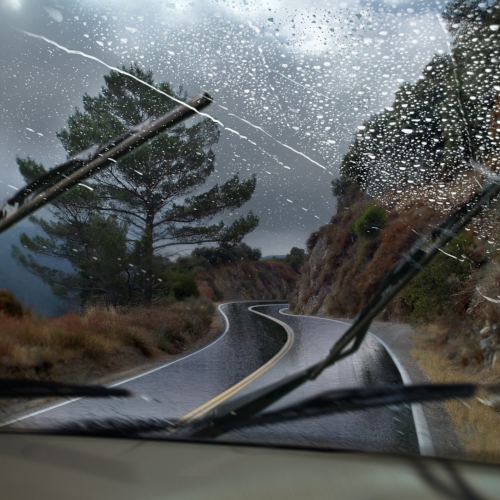Stay Safe on the Road During Heavy Winds
Stay Safe on the Road During Heavy Winds

Driving in high winds can be nerve-racking and genuinely dangerous - particularly when high-profile vehicles are involved. Add other common factors like rain and snow into a windstorm, and the level of potential risk only rises. So how can you prepare yourself for a windy commute?
PLAN AHEAD
You may have to drive slower than usual during a wind event, so leave extra time for yourself to arrive at your destination. Stay tuned to radio broadcasts that can give you updates on changing conditions.
BE READY
Driving in the wind requires constant adjustment. Keep your hands firmly on the wheel to maintain control, and prepare to make steering corrections when driving into an area unprotected from the wind. These changes can be sudden, so don't panic if your car's path is impacted by a wind gust.
BE AWARE
The force of the wind will be stronger on high-profile vehicles like trucks, vans, SUVs or vehicles pulling trailers. This should be noted by anyone driving high-profile vehicles as well as people who share the road with them. Always maintain a safe distance when driving near high-profile vehicles, which are prone to swinging out during wind gusts.
WATCH OUT FOR DEBRIS
High winds can blow tree limbs, branches and debris into the roadway. Visibility could be impacted during a wind storm, so pay close attention to avoid hitting objects. It may take some time to clean up after a windstorm, so be cautious of obstructions in the road even after the winds have stopped.
AVOID POWER LINES
Power lines can be brought down during a windstorm, creating a dangerous hazard for anyone driving nearby. Never drive over a downed power line. Even if the line appears to be disconnected, high-voltage wires may still active and dangerous. Do not touch anything that's in physical contact with a downed line.
PARK IN A SAFE PLACE
Pull over if winds are too severe for safe driving. Do not park on the shoulder of a busy roadway or on a bridge. Avoid parking in flooded areas or near trees or tall objects that could fall on your car.
EMERGENCY KIT
Emergency kits are essential for everyday driving, but they are especially necessary during weather events like a windstorm. Your local AAA branch carries a 42-piece Premium Road Kit that includes many emergency items to help keep you safe on the road.